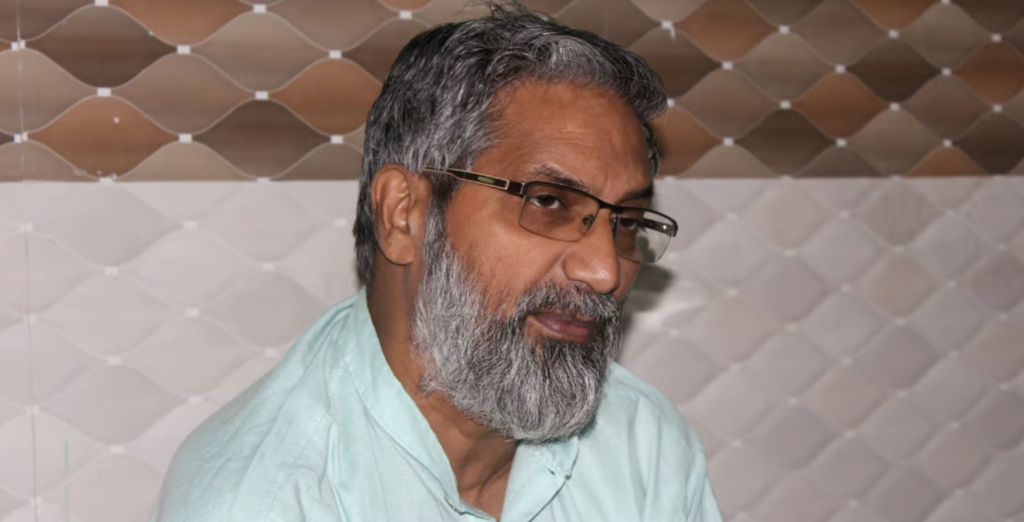In the wake of a mass indictment of 42 people in India over charges of fraudulent conversion of members of poor and tribal communities to Christianity, a Catholic expert is warning that recent elections in several Indian states, which saw strong gains for the Hindu nationalist party of Prime Minister Narendra Modi, may make the situation worse.
In effect, Father Anand Matthew suggested that in light of accelerating crackdowns under India’s anti-conversion law, Christianity in the country may need to return to the model of the early church of lay-led small Christian communities able to fly below the radar of government authorities.
“Anti-Christian intolerance and harassment has already been bad, and this victory doesn’t augur well for religious freedom in these states,” said Mathew, a prominent social activist and a member of the Indian Mission Society.
The new gains for Modi’s BJP party, taking control of three states in northern India, come ahead of national elections set for next year.
Mathew said that in light of the results, the forecast may be for more incidents such as the recent charges filed against 42 people in Uttar Pradesh state in northeastern India, including 27 Christian pastors, after police confiscated a large quantity of religious books and materials as well as laptops.
According to the Times of India, a police spokesperson said that a local resident had lodged a complaint that some people were using “fraudulent means,” usually understood to mean financial inducements or other forms of pressure, to lure impoverished persons and members of India’s indigenous tribal communities to convert to Christianity.
Twelve Indian states have anti-conversion laws, which outlaw conversions due to force or other fraudulent means, and individuals violating the legislation face punishments such as fines and imprisonment. Critics, such as the United States Commission on International Religious Freedom, describe such laws as inconsistent with freedom of religion, complaining they are often used to harass or penalize religious minorities.
Based on the complaint in Uttar Pradesh, what’s known as a “first information report,” which basically opens a police investigation, was filed Nov. 30 against the 42 defendants under the state’s “Prohibition of Unlawful Conversion of Religion Act.”
Nine of the 42 people charged in the case were later taken into police custody.
According to Mathew, the charges are basically false.
“It is very unfortunate that for the past many months innocent pastors who spend time with the followers of Jesus in prayer are accused of forced conversion,” he said. “False narratives are set in the print and visual media and also in the social media.”
“Pastors and leaders of the Christian community are pictured as people mad with forced conversion,” Mathew said. “The Holy Bible is called ‘propaganda material.’ Prayer meetings where neither baptism nor conversion takes place are termed ‘Conversion Meetings.’”
According to Mathew, the political leadership of Uttar Pradesh, which is governed by the BJP, has issued specific directives to police to arrest anyone against whom a Hindu makes a complaint of forced conversion. On that basis, he said, almost 95 Christian pastors, including at least one Catholic priest, are currently jailed in the state.
“Christians are facing severe persecution,” Mathew said. “Yet the genuine Christians of different denominations are carrying out Christian services with prophetic courage,” complaining that they sometimes don’t get support of leaders of the institutional churches, who, he said, often appear to be on the defensive.
Looking at the new election results, Mathew said they may engender further challenges for India’s Christians, and suggested the situation may call for a reevaluation of missionary efforts in the country toward a greater role for laity as opposed to priests and religious.
“This is a call for the Christian community to introspect,” he said. “It’s time for a new ecclesiology, a new missiology.
“Instead of priests, sisters and religious going to the villages and leading the people, we should empower people in the villages to run their own churches, their own Christian communities,” Mathew said. “This is the best opportunity to strengthen the Basic Christian Community which is self-dependent [and] autonomous.”
“A new paradigm shift is required in our missiology, a Church of the type of first century Christians,” he said.

